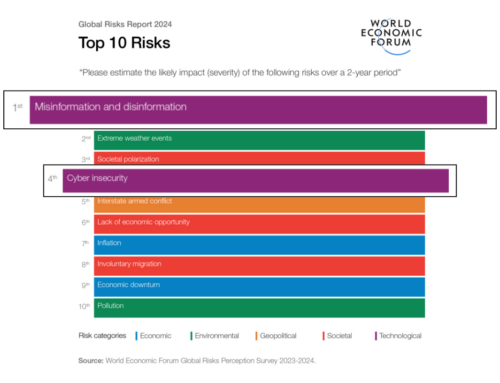The construction sector is one of the most complex fields to manage in terms of safety and regulatory compliance. Every project involves numerous stakeholders, a wide range of activities, and a set of information that must be constantly monitored and verified.
In this context, DM 49/2018 introduced fundamental guidelines for the digitalization of processes on construction sites, with particular emphasis on the authenticity and immutability of data. Ministerial Decree 49/2018, also known as the ‘Regulation on Temporary or Mobile Construction Sites,’ aims to improve worker safety and transparency in site operations.
This decree requires construction companies to accurately document all activities, using digital tools that guarantee the authenticity and immutability of information. Its direct implications involve the need to adopt technological solutions to monitor, record, and certify every phase of the work, ensuring that all data complies with current regulations and can be used for legal purposes in case of inspections. This decree not only obliges companies to ensure the security of collected information but also requires its immutability over time.
TrueScreen stands out as an ideal technological solution to tackle these challenges, offering an innovative platform that ensures collected data is authentic, secure, and immutable.
Adopting TrueScreen not only enables companies to comply with current regulations but also optimizes processes, improving operational efficiency and transparency in daily site activities.
The Importance of Data Authenticity
Definition of Authenticity
Authenticity refers to the truthfulness and origin of information. In other words, authentic data is data that comes from a reliable source and faithfully represents reality. In the construction sector, authenticity is crucial because every phase of the project must be documented precisely to ensure the quality and safety of the work. This includes the collection of data such as photos of the work, inspection reports, geographic surveys, and other documents that testify to the project’s progress.
Without authenticity, it is impossible to trust the collected data. This can lead to errors in project management, delays, or even compliance issues that can result in legal penalties. For this reason, DM 49/2018 states that all information collected on-site must be authentic and verifiable, to ensure transparency and accountability of all stakeholders involved.
Relevance in DM 49/2018
DM 49/2018 requires the use of technological tools capable of ensuring the authenticity of the information entered, to ensure transparency and accountability in construction processes. This means that companies must equip themselves with solutions that allow them to certify the origin of data, making it reliable and demonstrable in case of inspections or checks by competent authorities. This requirement is essential to improve work quality, avoid disputes, and reduce legal risks.
TrueScreen: Guarantee of Authenticity
Data Certification
TrueScreen is a tool that allows for the certification of photos, videos, screenshots, and documents, giving them legal and evidentiary value. This certification occurs through a process that adds a digital signature and timestamp to each collected data, ensuring that the acquired information represents the exact moment it was captured. This approach provides undeniable proof of data authenticity and prevents future disputes or challenges.
The ability to certify data directly in the field is a key element for the construction sector, where information must be collected in real-time and often under challenging conditions. TrueScreen makes it possible to do so simply and securely, ensuring that every piece of collected data is immediately verifiable and usable for legal purposes.
Forensic Methodology
One of the distinctive features of TrueScreen is the use of a patented forensic methodology for data acquisition. This methodology ensures that data is collected securely and offline, preventing tampering and guaranteeing authenticity. The forensic methodology applied by TrueScreen ensures that each data point is sealed in a way that prevents falsification, providing a guarantee of validity that goes beyond the mere operational needs of the site.
This methodology is particularly important in legal contexts, where proof of the authenticity of data can make the difference between winning or losing a case. With TrueScreen, companies can be sure that every piece of information collected is tamper-proof and can be used as legal evidence if needed.
Data Immutability
Definition of Immutability
Immutability implies that once recorded, data cannot be altered without leaving clear traces. This is fundamental to ensure that site documentation remains intact and reliable over time. If data were subject to uncontrolled modifications, the integrity of the entire construction project could be compromised, exposing the company to legal and financial risks.
In the construction sector, the ability to demonstrate that collected data has not been altered is essential to ensure the safety and quality of the work. Data immutability is a fundamental requirement of DM 49/2018, which states that all information must be stored in a format that does not allow subsequent alterations and that any attempt to modify must be traceable and detectable.
Legal Implications
According to DM 49/2018, data must remain immutable to guarantee its legal validity in case of disputes. This means that every piece of information must be stored in a format that makes unauthorized alterations impossible and that every modification leaves a visible and verifiable trace. This approach is essential to ensure transparency and accountability of all stakeholders involved in construction processes, minimizing the risk of legal disputes and ensuring that all information is reliable and usable for legal purposes.
TrueScreen: Guarantee of Immutability
Secure Documentation
TrueScreen ensures that every document created is timestamped and digitally sealed, ensuring that it remains unchanged over time. This means that every piece of information collected during site operations is protected and can be used as evidence in case of disputes or inspections. TrueScreen’s digital sealing technology ensures that even the smallest change would be immediately detectable, providing an additional level of security for the data.
The ability to guarantee data immutability is particularly important in a sector like construction, where every detail can make the difference between a successful project and a failed one. With TrueScreen, companies can be sure that every piece of information collected is protected and can be used as legal evidence if necessary.
Regulatory Compliance
TrueScreen complies with eIDAS and GDPR regulations, ensuring that all information is managed according to the highest legal standards. Compliance with the eIDAS regulation ensures that electronic signatures and digital documents have full legal value throughout the European Union, while compliance with GDPR ensures that personal data collected is handled in accordance with individuals’ rights. This makes TrueScreen a robust and comprehensive solution for data management in contexts where legal compliance is crucial.
Interaction between Authenticity and Immutability
Essential Synergy
Authenticity and immutability are two closely interconnected characteristics. Without authenticity, immutability loses its meaning, and vice versa. TrueScreen integrates both features, creating a robust system for data management on construction sites. The combination of authenticity and immutability offers a complete guarantee: each collected data point not only comes from a verified source but once recorded, cannot be altered without detection.
This synergy is crucial to avoid possible manipulations and ensure transparency in documentation processes. In a sector like construction, where trust and safety are fundamental, having the certainty that each data point is authentic and immutable is an essential requirement to ensure the quality and safety of the work.
Practical Examples
Through the use of TrueScreen, companies can document every phase of the project with the certainty that the data will remain authentic and immutable. For example, during the inspection of work on-site, supervisors can use TrueScreen to collect photos and videos that document the progress of the work. These digital proofs can then be used to verify that activities were carried out according to the required specifications, providing protection for both the company and the end customer.
Additionally, TrueScreen allows for the certification of daily worker reports, ensuring that all activities are recorded accurately and without the possibility of alteration. This not only improves the quality of documentation but also reduces the risk of disputes and challenges, providing an additional level of protection for all parties involved in the project.
Operational Advantages of TrueScreen on Construction Sites
The use of TrueScreen not only ensures regulatory compliance but also brings significant operational advantages to the construction site context. Firstly, the ability to customize workflows allows companies to tailor the solution to their specific needs. This means that data collection procedures can be optimized to reduce time and improve efficiency, minimizing the risk of errors or missing information.
Automation of Control Processes
TrueScreen allows for the automation of many verification and control processes, eliminating the need for manual checks that can be time-consuming and error-prone. Thanks to digital technology, site managers can schedule inspections and verifications so that they are automatically recorded, ensuring that every phase of the project is adequately documented and verified without relying on ex-post controls that often slow down the work.
Centralized and Secure Access to Data
Another significant advantage offered by TrueScreen is centralized and secure access to all collected information. This allows the various stakeholders involved in the project to have a clear and updated view of the status of the work, improving team collaboration and increasing transparency. Thanks to controlled and permission-based access, each stakeholder can only view the information relevant to their role, ensuring the confidentiality of sensitive data.
Process Efficiency and Cost Reduction
Adopting TrueScreen allows for a reduction in the time required for data collection and verification, improving process efficiency and reducing costs associated with documentation management. This is particularly important in a sector like construction, where profit margins can be narrow, and any inefficiency can have a significant impact on overall project costs.
Conclusions
In an increasingly demanding regulatory landscape like that outlined by DM 49/2018, TrueScreen represents an effective response to the needs for data authenticity and immutability on construction sites. The ability to collect, certify, and manage data securely and in compliance with regulations offers companies a significant competitive advantage. Not only can they meet legal requirements, but they can also improve the efficiency of their processes, reduce the costs associated with documentation management, and ensure a level of transparency that strengthens the trust of clients and authorities.
By adopting this technology, companies can not only comply with current regulations but also improve the transparency and reliability of their operations. TrueScreen makes site data management not only safer but also simpler, more efficient, and integrated with the operational needs of an ever-evolving sector.
Frequently Asked Questions
1. What is DM 49/2018, and why is it important for construction sites?
DM 49/2018 is a Ministerial Decree that introduces guidelines for the digitalization of processes on construction sites, focusing on the authenticity and immutability of data. It aims to improve worker safety, transparency, and regulatory compliance, requiring companies to document all activities accurately with digital tools.
2. How does TrueScreen help ensure data authenticity on construction sites?
TrueScreen certifies data by adding a digital signature and timestamp to photos, videos, and documents, providing legal and evidentiary value. This ensures that the collected data is authentic, verifiable, and suitable for legal purposes.
3. What is the significance of data immutability in the construction sector?
Data immutability ensures that once recorded, data cannot be altered without leaving evidence. This is crucial in construction to maintain the integrity of documentation and prevent legal and financial risks arising from uncontrolled modifications.
4. How does TrueScreen guarantee the immutability of data?
TrueScreen uses digital sealing technology to ensure that every document is timestamped and protected against unauthorized changes. Any attempt to modify the data would be immediately detectable, providing an additional level of security.
5. What are the operational benefits of using TrueScreen on construction sites?
TrueScreen offers several operational benefits, including automation of verification processes, centralized access to data, and improved workflow efficiency. These features help reduce time, minimize errors, and lower costs associated with data management on construction sites.



